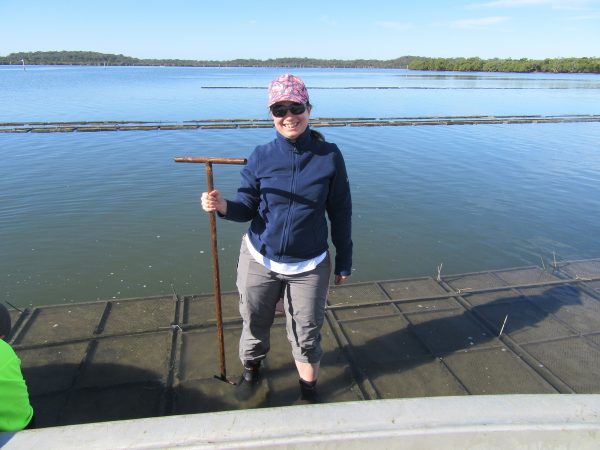Today marks International Day of Women and Girls in Science. To celebrate #WomenInScience, we spoke with University of Stirling Research Fellow Susan Fitzer.
Name
Susan Fitzer
Job title
Research Fellow
Course studied
Marine Biology and Oceanography degree, Applied Marine Science masters and PhD in Marine Science
Briefly describe what you do and your areas of interest in your particular field?
As a NERC research fellow I lead a project examining the effects of climate change on shellfish aquaculture. I am interested in how mussels and oysters grow their shells under environmental change such as warming and coastal acidification.
What got you interested in science?
I was fascinated as a child by the sea and spent summers exploring tide pools at the seaside. A love for science then developed through doing laboratory practical’s at school and regular trips to science museums.
In your opinion, what makes a scientist?
Someone who questions everything, you have to be inquisitive and keen to explore the unexpected.
What makes you get up in the morning?
My one year old daughter most days! Apart from that science wise, field work and lab work, this is why I got into science.
What excites you about your field/work?
Getting out onto a boat or walking along the shore at the coast, fresh air, meeting other research, shellfish farmers and travelling around the world to explore interesting field sites.
What is the coolest thing about your work/research?
I am able to visit and work in some amazing locations visiting shellfish farms and investigating problems that the farmers are facing.
If you could have dinner with 3 scientists (living or dead) who would you invite?
Charles Darwin, Marie Curie and David Attenborough
What one future invention would you like to see become a reality?
A star trek transporter!
In your opinion, what’s the most exciting problem in science currently facing humanity?
Coastal acidification
If you didn’t pursue a career in science, what other line of work do you think you would have went into?
Engineering
Can you tell us a science joke?
Why can you never trust an atom? They make up everything!
What words of advice do you have for young people thinking of a career in STEM?
Go for it, be determined, work hard and you’ll get there.

